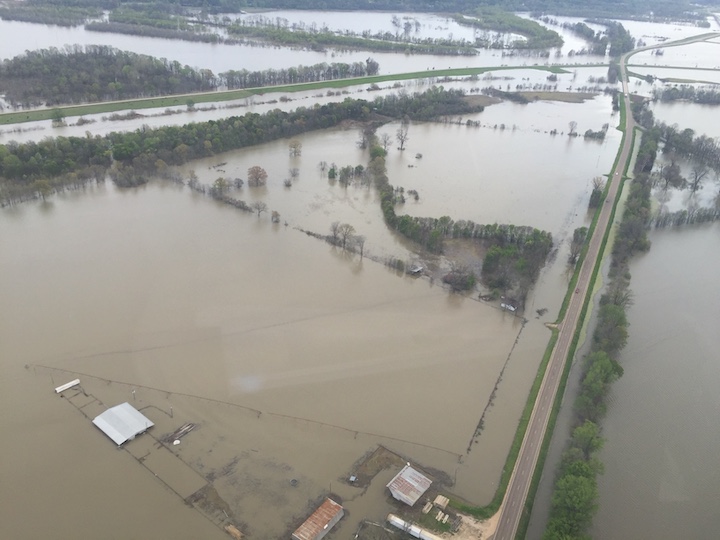We as a nation are seriously confronted by a changing environment that is leaving more rain in some spots, and less in others. To the west of the Powell Meridian, drought scorched plains, to the east, floods, washouts. In both, crop failure and societal pressure of devastating loss of both property and life. Take for example a long term problem that has been exacerbated by the climate crises, the Yazoo River and it’s relationship with the Mississippi River delta, and the federal governments response. This is a classic tale that takes us back to 80 years ago where the Army Corps. of Engineers identified an issue with the drainage of a specific part of the delta watershed. Dikes and levee systems that run all along the Gulf Coast do a great job
Topics:
Michael Smith considers the following as important: climate change, EPA, flood risk, Taxes/regulation
This could be interesting, too:
Joel Eissenberg writes How Tesla makes money
Angry Bear writes USMAC Exempts Certain Items Coming out of Mexico and Canada
Joel Eissenberg writes DOGE goes where the money is
Joel Eissenberg writes SCOTUS and the power of the purse
We as a nation are seriously confronted by a changing environment that is leaving more rain in some spots, and less in others. To the west of the Powell Meridian, drought scorched plains, to the east, floods, washouts. In both, crop failure and societal pressure of devastating loss of both property and life.
Take for example a long term problem that has been exacerbated by the climate crises, the Yazoo River and it’s relationship with the Mississippi River delta, and the federal governments response.
This is a classic tale that takes us back to 80 years ago where the Army Corps. of Engineers identified an issue with the drainage of a specific part of the delta watershed. Dikes and levee systems that run all along the Gulf Coast do a great job of keeping storm surges out, but also, in this case, do a fantastic job of keeping flood waters in.

Nearly a million acres are flooded when extreme rain and meltwater all the way from the Canadian border descend down the Mississippi River through a vast network of tributaries to eventually plunge into the Gulf with a silt plume that can be seen from the air. Along those areas are sea level or somewhat above sea level communities and agricultural fields. This is prime cotton land, and the delta is an extremely fertile place to grow all manner of crops, until it is under water for months on end.
The main conflict arises from two governmental entities. The Army Corps is responsible for the flood gates that it operates and installed decades ago to assist in the Mississippi River flood system and each time the Corps close off certain watersheds, the community behind the gates flood, and as such the Corps has agreed to add pumps to the levee system to evacuate the South Delta. The EPA has issued a firm opposition against citing wetland destruction. The inability for the Corps to pump out the water has led to millions of economic and property losses each year the area is inundated. The more cost efficient approach, so says the Corp, is to install pumps to mitigate the flooding.
Or as Peter Nimrod, chief engineer of the Mississippi Levee Board estimates:
At present, the cost to build a pump system for the South Delta is approximately $400-$500 million. […]From 2008-2018, the South Delta sustained $372 million in flood damage, and the bill from the calamitous 2019 flood—by itself—is well over $1 billion.
The EPA continues their stance that the pumping would violate the Wetlands Act, and with new brass at the EPA under the Biden Administration has spurred the potential violation of the Clean Water Act, thus throwing a wrench into the gears of eighty years of progress.
The project is now stalled, mired in the bureaucratic nightmare of which Act is violated, awaiting yet more flood claims as we move into a spring potentially filled with rains that could kick off new flooding, coating the taxpayer more money year after year.
If we as a country can’t get it together to help ourselves cope with reality, we will be stuck wading in dirty water as decision makers wrestle over antequated agreements.
